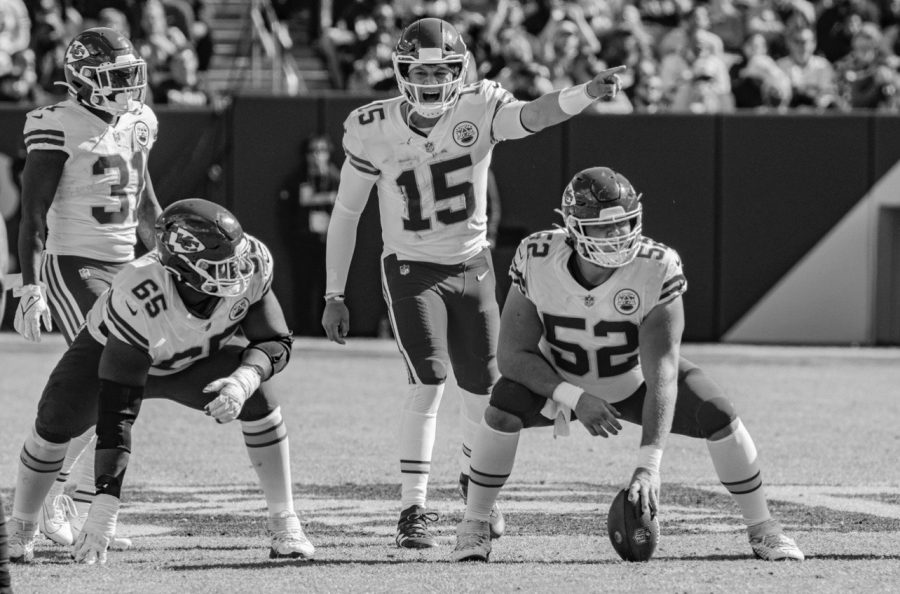A coin toss shouldn’t determine a team’s victory.
With 25 total points being scored in the final two minutes of regulation, the AFC Divisional Playoff game between the Buffalo Bills and Kansas City Chiefs was one of the most thrilling NFL games I’ve ever seen.
The high-scoring affair ended in a 36-42 victory for Kansas City with a touchdown pass from Patrick Mahomes II to tight end Travis Kelce in overtime. While the game was fascinating to watch, it ended unfairly.
The overtime rules for the NFL are frustrating to say the least. The 15-minute postseason overtime period begins with a coin toss. If the team that wins elects to receive the ball first, they can win the game without the opponent’s offense making any plays if they score a touchdown on their opening drive.
In the AFC Championship Game Sunday night, the coin toss was fairly irrelevant as the Cincinnati Bengals and Kansas City Chiefs moved into overtime. Kansas City received the ball at kickoff, but Patrick Mahomes threw an interception, setting up the Bengals for a field goal.
The Bengals got the field goal. Because of the overtime rules, the game was over. But didn’t Kansas City deserve a chance to play until the end, just as the Bills did last week?
It makes sense to have a coin toss to determine who receives the ball first. But it’s careless to not allow both offenses to take the field and play until the end of the period.
Overtime should be an impartial extension of the competition so that one team wins, not an almost guaranteed victory for the team that just so happens to pick the right side of the coin.
Oftentimes, it’s game over without the other team’s offense having the opportunity to score some great plays. The Bengals were a lucky exception here. It’s a cheat, and the advantage that one team gets over another ruins the integrity of an otherwise fair game.
Bills quarterback Josh Allen threw a touchdown pass to Gabriel Davis with just 13 seconds left in the 4th quarter, giving them a 36-33 lead over Kansas City.
Yet, when Kansas City utilized those 13 seconds to tie the game, the Bills’ quarterback didn’t get to make a single play in overtime because the Chiefs scored a touchdown on their first drive–to no one’s surprise.
Allen threw four touchdowns throughout the 60 minutes of regulation, defended by a strong offensive line and powerful defensive line. The team stuck it out until the very end.
The Bills didn’t make it to the top four by luck. So why did their season end because of an unlucky outcome to a coin toss?
Allen and his crew deserved a chance, just as both teams of any NFL overtime game do.





















